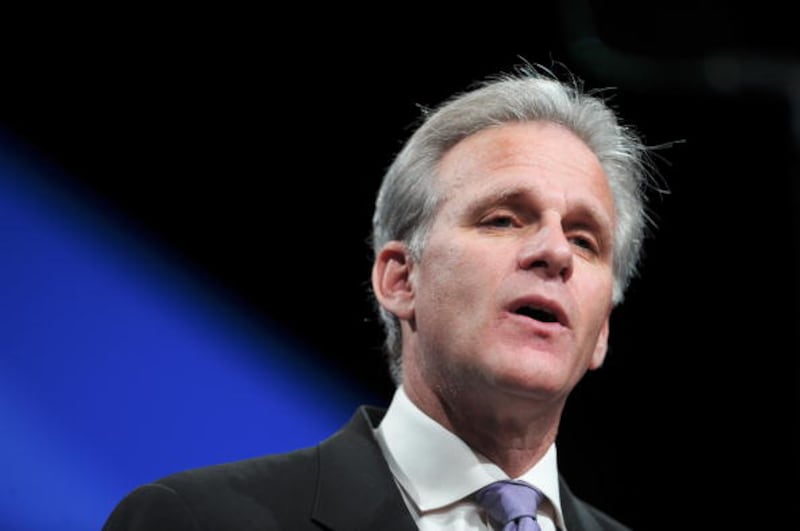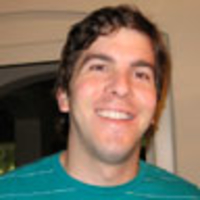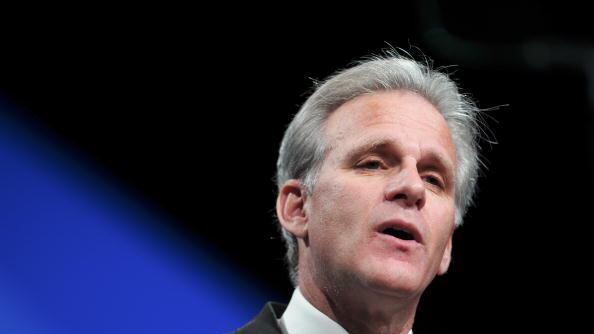If this were a band, we'd call it the Make Friends Not News Tour. Three weeks before the U.S. presidential election, Michael Oren, Israel's ambassador to the United States, is as visible as ever, appearing in major newspapers, Brooklyn synagogues and, today, on that most fractious of stages: ABC's The View. His job appears to be to make Americans—and particularly liberal Jews, like the crowd he appeared in front of in Park Slope last night—forget Bibi Netanyahu's recent pen-and-ink performance at the United Nations, as well as the prime minister's stint on the Sunday talk shows last month, which earned accusations that he was meddling in the presidential election of Israel's closest ally.

Oren fulfills this job by drawing on a deep reserve of well-tested bromides, saying quite a bit without saying much at all. It is arguably a diplomat's most useful public skill: to speak mellifluously and fluently about the issues of the day in a manner that, in the end, is totally unsurprising and totally in line with his boss's views. The effect is such that when questions are asked, they're transmogrified into the question that the official wants to answer, or they're evaded with a charming aplomb.
To wit: when Rabbi Andy Bachman, who interviewed the ambassador last night on the bimah at Congregation Beth Elohim, asked about the difference between Messrs. Obama and Romney, Oren responded, “I am so not going to answer that question.” The audience—which filled up perhaps half of the synagogue's 1,000-seat sanctuary—laughed appreciatively. In other words, issue deflected; mission accomplished.
Later the rabbi approached from a slightly different angle of attack, but the response was essentially the same. “We don't interfere in American elections,” Oren said, his voice flat and unequivocal. He added that the Israeli government has tremendous respect for the American political system. These are talking points so polished you could see your reflection in them. And indeed, they carried Oren throughout the night.
Oren opened the event with a capsule history of Israeli achievements in agriculture, technology, education, health care, culture, and other fields. He made remarks about Israel being a “work in progress” and requiring improvement, but remained intentionally vague. He spoke in favor of “Jewish pluralism” and said that Israel “must have a zero tolerance policy for any act of intolerance.”
The latter comment was one of those high-minded, finely worded declarations that without sufficient elaboration becomes strangely insubstantial, like putting your hand through smoke. Did the ambassador's statement refer to intolerance against Jews? To Price Tag attacks? To maltreatment of African migrants? Or (d): all of the above?
Oren pledged that Israel was ready to make “agonizing sacrifices for peace.” And when Rabbi Bachman asked about obstacles to peace, including settlements, the question was brushed away with so much practiced ease that it was difficult not to admire the performance. “Settlements make up one or two percent of the West Bank,” Oren said breezily. “It's not a physical obstacle.” The rest of Oren's answer included familiar remarks about the need for negotiations, that officials are tired of arguing senselessly, and that both Israelis and Palestinians “are beyond the blame game.”
After drawing some equivalence between the two sides, Oren then tilted towards some mild critiques of the Palestinians, saying that their leadership “is divided three different ways” and that it's their responsibility to return to negotiations. “In the last four years, we've removed all but 10 checkpoints,” Oren said, adding that “many of them aren't even functional,” as if they were a broken home appliance.
Recently the New York Times, with some apparent affection, described Oren as “zombie-like.” There is an automatism to him, a preternatural talent for responding exactly, and briskly, with what is expected. Sometimes he even jumps too fast at a prompt, as when, during a discussion about African migrants, Rabbi Bachman used the term “refugees.” Oren immediately broke in—“Not refugees”—interrupting the rabbi with the correction.
The distinction was important, Oren argued, because only two percent of the approximately 60,000 African migrants in Israel counted as “actual refugees.” He meant that they were from Darfur and, presumably, that they fulfilled criteria under international law that earned them refugee status. Others, like Eritrean and some Sudanese migrants, may face death should they return to their home countries, but they don't have the same legal status.
The migrant issue is undoubtedly a difficult one. (“This is not easy,” Oren said. “Any of it.”) But it is one where the ambassador appears on shakier ground. For instance, he spoke emphatically about the “medieval” treatment inflicted upon migrants by Bedouin smugglers and of Israel's history of accepting refugees, including Vietnamese boat people under Prime Minister Begin's leadership. Yet when Oren says, “About 40 percent of them are Muslim, which creates a security concern for us,” the air of world-weary humanitarianism dissipates. In its place appears the cold-eyed security official, speaking in the language of racial profiling and demographic imbalances.
There are certainly other portions of Oren's remarks that anyone left of Likud could find issue with. And there is the occasional, deeply revealing elision. When talking about the social justice protests (“impressive,” “very moving”), Oren said that the country has a severe housing shortage, one that's “very difficult to address.” An alert interviewer might ask if the Occupation—which itself is sometimes justified as a way of fulfilling this housing shortage—drains resources better spent on creating housing and infrastructure inside the Green Line.
But there was no follow-up, and the ambassador was nearing the end of his time. He had spent an hour projecting a charming sort of blandness, along with a sense that these are simply lines that he's saying, and that if he had his druthers, he'd surely tell you more. (C.f. “I am so not going to answer that.”) He'd take off the politician's mask and deal in the bluntness and complexity that you'd expect from someone who grew up in New Jersey and made his name as a historian. But nu, this is his job, and he is not here to tell us anything, only to seem to have said something.





